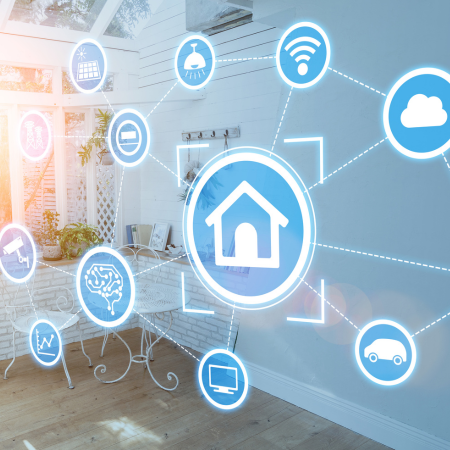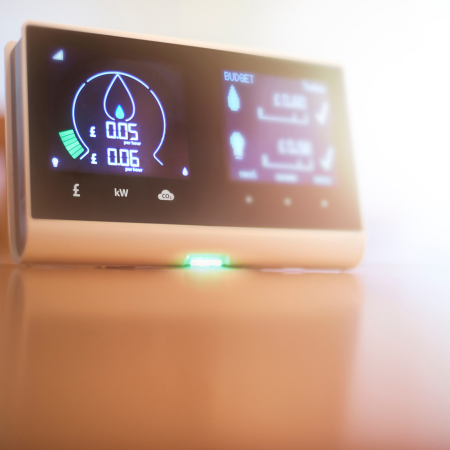Smart homes are becoming increasingly popular, but there are still many myths about them. Today we will debunk five of the most common myths about smart homes. We will discuss the truth about the costs of an intelligent house, security, complexity, convenience, and energy efficiency. By the end, you will better understand what smart homes are and whether they suit you.
Myth: Smart Homes are too expensive.
In reality, some Smart Homes setups can be pretty expensive; however, it all depends on the type of setup you're looking for, as there are many affordable options to choose from.
We recommend starting with a few essential devices, such as a Smart Thermostat or a Smart Light Bulb and, over time, adding more products as you can afford them.
Looking for deals and discounts is a great way to keep the expenses down, or perhaps consider purchasing second-hand devices.
Myth: Smart Homes are too complicated to set up.
The simple answer is no; Smart Home devices are, in fact, straightforward to set up nowadays as technology has further advanced. In many cases, you can easily plug in the device and connect it to your Wi-Fi network.
We recommend choosing the right platform, as there're many to choose from, such as Amazon Alexa, Google Assistant, and Apple HomeKit, which can all get set up through their apps.
Next, to understand your Smart Home ecosystem, decide whether you require a hub to control your system more efficiently, find good spots for your Smart Home devices, and name them accordingly to identify them quickly.

Myth: Smart Homes are not secure.
Smart Home systems are not inherently insecure; however, there are some security risks that you need to keep in mind before setting up a smart home. The most common security risks are:
Data Breaches: Smart Home devices can collect a lot of data about the user, such as location, voice recordings and energy usage. This information can be valuable to hackers, so it's imperative to make your devices as secure as possible.
Hacking: Most Smart Home devices connect to the internet, which makes them vulnerable to being hacked. Hackers can gain access to your devices to control them, so an excellent way to prevent this is to regularly update your devices and enable multi-factor authentication if the device allows it.
Malware: Malware is various malicious programmes designed to steal personal information and cause harm to servers and computer networks and physically damage your Smart Home devices. Cybercriminals use malware to obtain personal information such as credit cards and passwords for their financial gain; they can also take control of your Smart Home system, such as lights, locks, opening doors and causing devices to overheat.
Physical Security: Some Smart Home devices sometimes lack basic security features such as motion sensors, security cameras, weak door locks and poor lighting, making your home an easy target for criminals. Before investing in a Smart Home system, we recommend researching each product, ensuring your devices offer the best protection, regularly changing passwords, and installing features such as solid door locks and cameras around your home.
Myth: Smart Homes will become outdated.
A common misconception about smart homes is that, eventually, smart devices will need to be updated. While it's true to a degree, as technology is constantly evolving with many new features released, many Smart Home devices have a long life span that is considered future-proof. There're a few things you can do to prolong the life of your Smart Home device, such as;
- Choose devices that will work on multiple platforms.
- Keep your Smart Home devices installed with their latest firmware.
- Purchase from reputable brands to guarantee your devices will last.
- Keeping your devices free from dust can help avoid overheating.
- Switch off your Smart Home products once every few days, giving them time to cool off.

Myth: Smart Homes consume a lot of energy.
Smart Home Thermostats such as the Google Nest Pro Thermostat can provide many energy-saving features, one of which allows you to turn your heating down low or off while you are away, reducing your energy bills by up to 10%. Many other appliances can adjust automatically to energy needs and detect inefficiencies, so electricity, water, and gas waste reduce energy consumption exponentially.
Smart Plugs are also a great way to save on power as they won't use as much 'phantom power' even when they stay on—using Water Sensors to detect leaks is a great way to stop property damage and save on wasted water.
In conclusion, while there are many more myths about Smart Homes, it's important to remember that Smart Homes Systems are becoming more affordable, easy to set up and provide you with a reliable way to secure your property, providing a better quality of life and making your home more enjoyable.
City Plumbing is committed to providing you with the very best technical information for your next Smart Home project. Contact one of our experts, who are always on hand to help.



